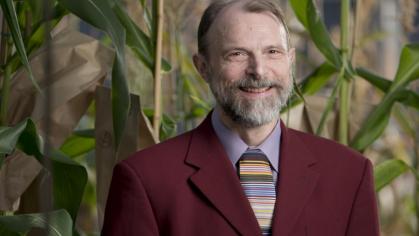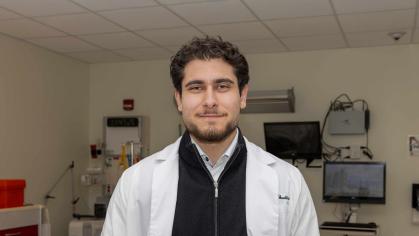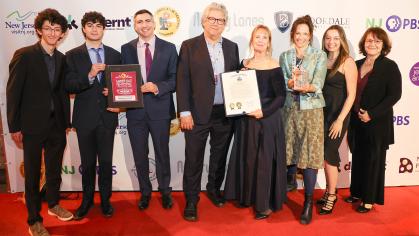Four Rutgers Professors Awarded Fellowships at Prestigious Institute for Advanced Study

School of Arts and Sciences scholars to spend academic year at center founded by Einstein and others
Four faculty members in Rutgers School of Arts and Sciences have been awarded memberships for the 2023-24 academic year at the Institute for Advanced Study (IAS) in Princeton, one of the world’s foremost centers for intellectual inquiry into the sciences and the humanities.
There, they will deepen their studies on topics such as climate and society in the late medieval and modern ages, the profound relationship between mathematics and physics and how tools for measuring time influence human expression.
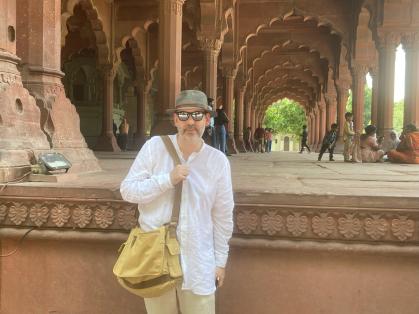
Alastair Bellany, a professor in the Department of History; Lev Borisov, a Distinguished Professor in the Department of Mathematics; Gregory Moore, a Board of Governors Professor in the Department of Physics and Astronomy; and Jeffrey Ulrich, an assistant professor in the Department of Classics, will join other new and returning scholars for the 2023-24 academic year.
The institute, an independent entity founded in Princeton in 1930, is regarded as one of the world’s leading centers for curiosity-driven basic research. Past faculty have included Albert Einstein, who was one of its first professors and remained at the institute until his death in 1955, and distinguished scientists and scholars such as J. Robert Oppenheimer, Kurt Gödel, John von Neumann and George Kennan.
Each year, IAS welcomes an international group of more than 200 of the most promising distinguished scholars and postdoctoral researchers to engage in interdisciplinary collaboration. Visiting scholars are selected through a highly competitive process by members of a permanent faculty— leaders in their fields—for bold ideas, innovative methods and deep research questions.
Bellany’s research at the institute in the spring semester will mark a significant departure from his earlier work. He will be focusing on a new project exploring the impact of climate change during the Little Ice Age – a period from 1300 to 1800 when average temperatures dropped in many regions of the globe – on the social, cultural and political history of late medieval and early modern Britain and Ireland.
“The Institute for Advanced Study, long a center of pathbreaking work in premodern European history, provides an ideal environment in which to focus on research and writing free from distraction,” Bellany said. “It is an honor to spend some time there.”
Bellany, who arrived at Rutgers in 1996 as a postdoctoral fellow and joined the faculty in 1997, has written widely on the political history of early 17th-century England, and most recently has been working on a survey history of Britain and Ireland from the Paleolithic Age to the early Enlightenment.
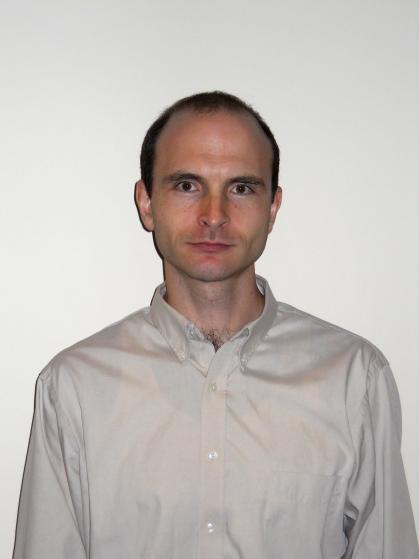
Borisov studies algebraic geometry, a field of mathematics that deals with sets, such as curves or surfaces, that are viewed both as geometric objects and as solutions of algebraic – specifically, polynomial – equations. He joined the Rutgers faculty in 2009.
He is known for his contributions to mirror symmetry, which is a part of mathematics inspired by string theory – an area of theoretical physics where scientists are looking for a mathematical framework to unify all known physical theories, such as general relativity and quantum mechanics. Certain string theory models that can be studied from two different mathematical viewpoints – algebraic geometry and symplectic geometry – are leading to what he views as multiple “fascinating” conjectures that have been actively studied since the early 1990s. He will continue to explore these areas.
“I want to expand my interests within algebraic geometry to the so-called p-adic arithmetic geometry,” Borisov said. “There is a special year on it at the IAS and I will be a part of that program.”
Moore, a mathematical physicist who joined Rutgers in 2000, seeks a unified understanding of the basic forces and fundamental particles in the universe through his study of string theory, M-theory and gauge theory. A leading intellect in the Rutgers New High Energy Theory Center, Moore is known for the high level of mathematical rigor he has developed in the study of theories with extra quantum dimensions of space-time known as supersymmetry. Among his accomplishments is a proposal for a new phase of topological matter – where properties of a material in a quantum state stay the same regardless of the shape, size or number of impurities – that someday may form the basis for computational elements of quantum computers.
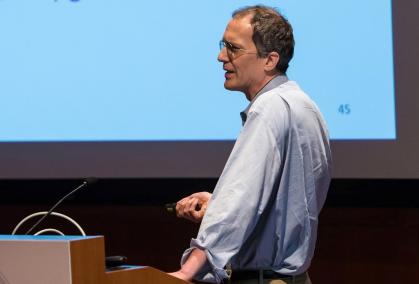
“I plan to work on the same general research directions I’ve been pursuing, although of course part of the point of a leave of absence is to have the opportunity to explore new areas and ideas,” Moore said. “But it will surely be within the general framework of what I call ‘Physical Mathematics.’”
This field, Moore said, is a subset of mathematical physics with one of its ultimate goals “understanding the ultimate foundation of physics.”
Ulrich, who joined Rutgers in 2018, is interested in the intersection of philosophy, literature and culture in Latin literature. In his study of the Classics, the investigation of the life and cultural expressions of the ancient Greek and Roman worlds, Ulrich has focused on several subjects, including how Greek philosophy is received, appropriated, and rearticulated in the Latin literary and philosophical tradition, particularly in the genre of the ancient novel. His forthcoming book, The Shadow of an Ass, considers the reception of Platonic ideas about aesthetics and human choice in a novel called The Golden Ass by the North African writer – Apuleius of Madaura.
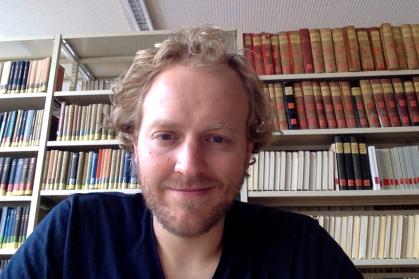
At the institute, he will be developing a project on the influence of technologies of time – specifically, tools for measuring time – on forms of human expression.
Originally a math major, Ulrich, while an undergraduate at Rutgers, fell into Classics by chance. "I happened to take a Greek class on a whim, and I was floored," Ulrich said. "Eventually, the rigor and beauty of both classical languages -- Greek and Latin -- fundamentally reshaped my brain, changed the way I interacted with texts, art, and ideas forever."
He decided to continue in this study. "As I went deeper into the ancient world, I realized that its variety and richness, with people groups across and throughout the Mediterranean exchanging ideas, ideologies, and goods, was a well-spring for thinking about how all human cultures struggle and strive to understand the world around them," he said. "In Classics, you can really study anything you want, from ancient medicine or religion to cults, magic, sexuality, and more.”

